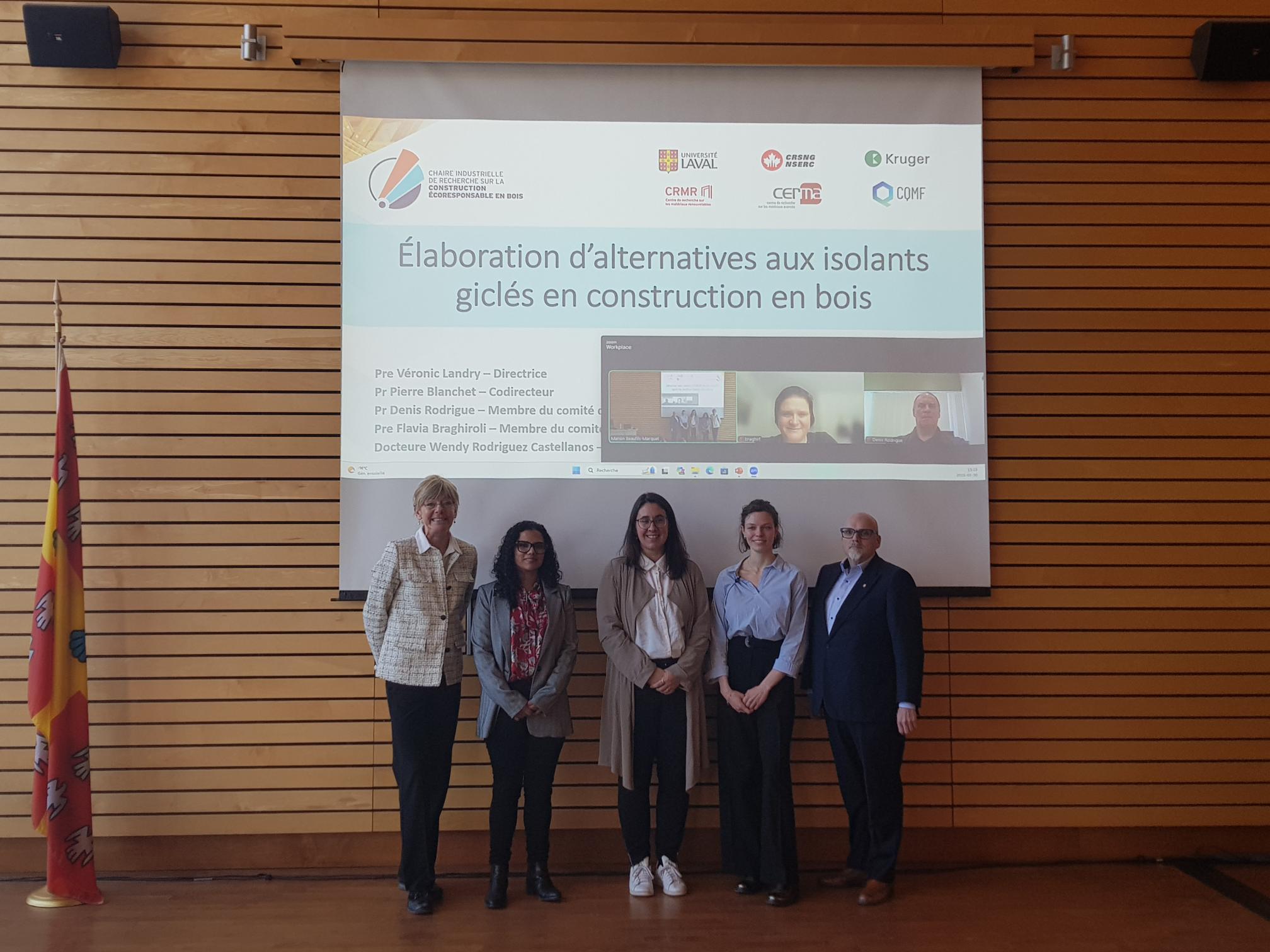Congratulations to Manon Beaufils-Marquet on her successful PhD defence!
Congratulations to Manon Beaufils-Marquet for successfully defending her PhD thesis in wood engineering and bio-based materials on Thursday, January 30, 2025. Under the supervision of Véronic Landry and co-supervision of Pierre Blanchet (Faculty of Forestry, Geography, and Geomatics, Université Laval), her thesis, entitled « Development of Alternatives to Spray Foam Insulation in Wood Construction » proposes innovative and sustainable solutions to reduce the environmental impact of insulation materials used in the construction sector.
This outstanding work represents a significant advancement in the field of bio-based materials, paving the way for more environmentally friendly alternatives while maintaining performance comparable to traditional insulation materials.
Congratulations, Manon! This milestone marks the beginning of a promising future filled with professional success and inspiring achievements.

Photo credit: Assira Keralta– From left to right: Marie-Hélène Vandersmissen, Wendy Rodriguez Castellanos, Véronic Landry, Manon Beaufils-Marquet and Pierre Blanchet.
The jury members were:
- Marie-Hélène Vandersmissen – Chair – Faculty of Forestry, Geography, and Geomatics – Laval University
- Véronic Landry – Research Director – Faculty of Forestry, Geography, and Geomatics – Laval University
- Pierre Blanchet – Co-supervisor – Faculty of Forestry, Geography, and Geomatics – Laval University
- Flavia Braghiroli – External Examiner (non-UL) – University of Quebec in Abitibi-Témiscamingue
- Denis Rodrigue – UL Examiner – Faculty of Science and Engineering, Laval University
- Wendy Rodriguez Castellanos – External Examiner – Innofibre
Once again, congratulations!
Summary:
The construction sector accounts for 37% of global greenhouse gas emissions and consumes 30% of the world’s energy, primarily from fossil sources. To reduce this footprint, optimizing building insulation is crucial. However, traditional insulating materials, such as spray polyurethane foam, rely on non-renewable resources. While bio-based alternatives exist, they do not fully meet thermal performance and permeability requirements.
This research explored the use of cellulose filaments (CFs) derived from bleached Kraft softwood pulp from the North as a substitute for petrochemical compounds in spray polyurethane foam. After extensive testing, it was demonstrated that CFs influence the morphology and thermal conductivity of the foam. However, their integration in large quantities alters certain essential properties, necessitating a more advanced adaptation strategy.
To maximize the positive environmental impact, the study also explored the chemical modification of CFs to replace petrochemical polyols, as well as their potential as a durable fire-retardant solution. The results indicate that modified CFs can reduce the toxicity of smoke in case of fire while preserving part of the required thermal performance.
This work makes a significant contribution to decarbonizing the construction sector and paves the way for future innovations in bio-based materials.

